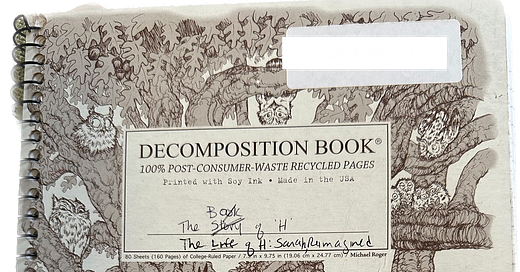How monotheism is helping me write my book
Plus how One Word continues to inspire me, project notebooks, and metaphors for God as Mother
Back in December, when a friend invited me to choose a word to guide me into 2024, I thought the idea was a little hokey. But I went along with it anyway. After all, there was a free online workbook involved, and I’m a sucker for a self-help-y project that involves a workbook.
My word, as you know from previous posts, is Author.
Keep reading with a 7-day free trial
Subscribe to The Life of H to keep reading this post and get 7 days of free access to the full post archives.



